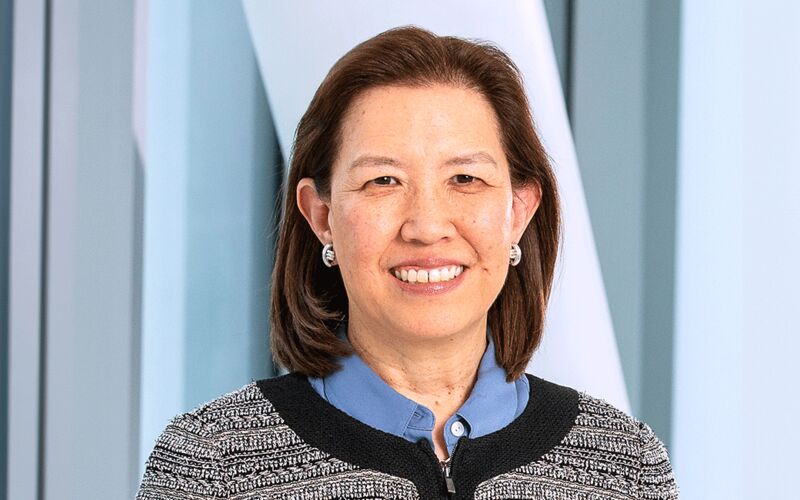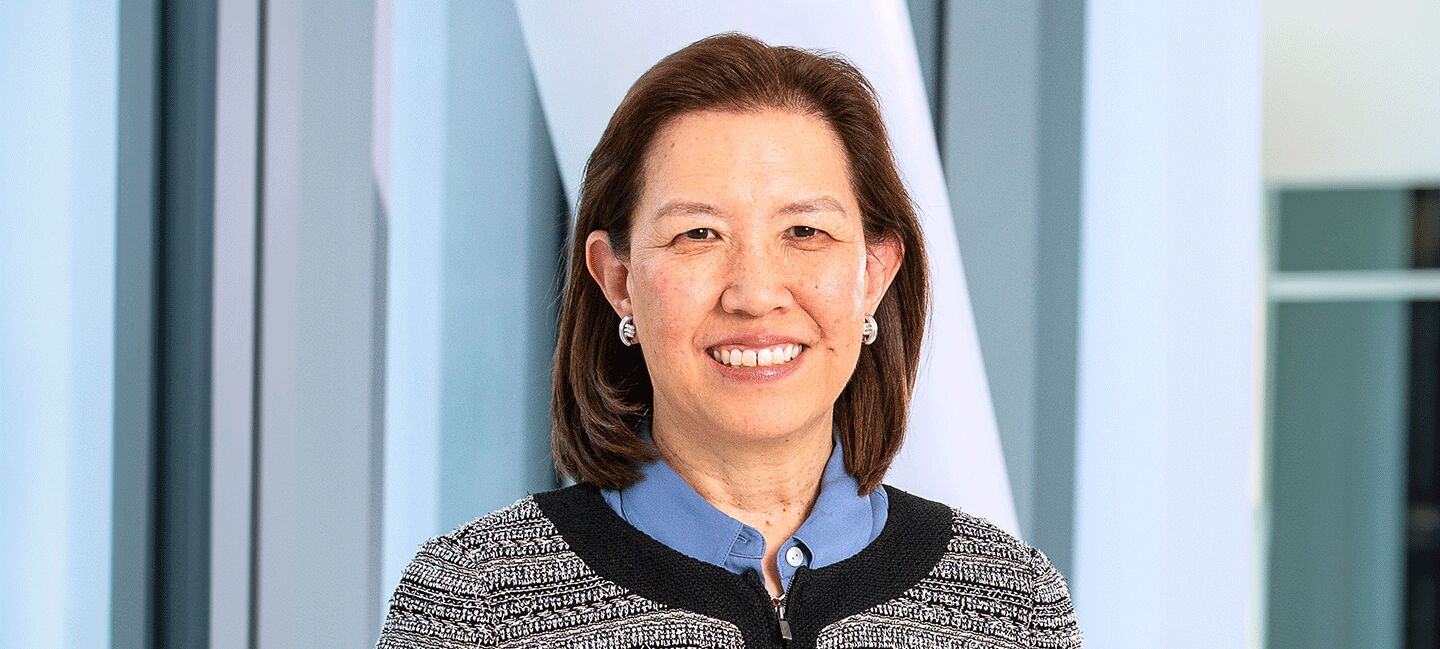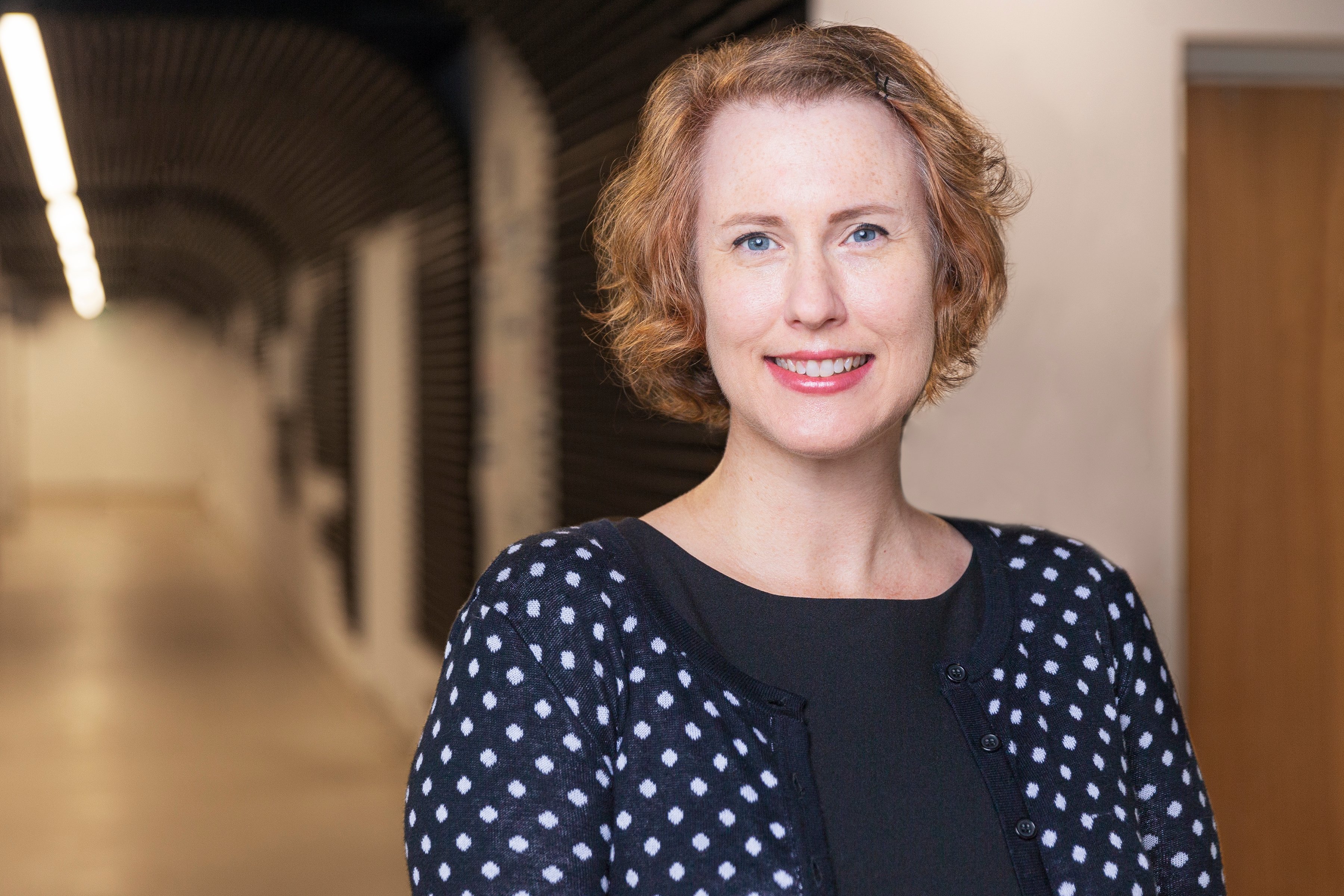Physician in Chief Stresses Need for All Talents in Medicine
SPECIAL SERIES: WOMEN IN ONCOLOGY
Women faculty at Moffitt Cancer Center come from different backgrounds around the globe. Their areas of research and clinical care span the entire cancer continuum, including clinical science and trials, basic science, epidemiology, health outcomes, medical physics and more. Community involvement and mentorship among faculty are foundational, and we celebrate the essential roles women play in making a difference at the cancer center and in society.
Meet Dr. Karen Lu
Karen Lu, MD, is the executive vice president and physician in chief at Moffitt Cancer Center. She is responsible for overseeing the Moffitt Medical Group, Florida’s largest multidisciplinary medical group. As a nationally recognized physician-scientist, Lu focuses her clinical and research interests on the surgical and medical treatment of women with ovarian and endometrial cancers, as well as the management of women at genetically high risk for these cancers. She is a leader in the cancer genetics field, publishing seminal articles on heredity gynecological cancers. Lu earned her bachelor’s degree in biochemical sciences from Harvard University and completed her medical studies at Yale University School of Medicine. She subsequently obtained her master’s in health care management from the Harvard T.H. Chan School of Public Health. She serves on the American Society of Clinical Oncology Research Committee and is the president-elect of the Society of Gynecologic Oncology. She is an elected member of the American Society for Clinical Investigation and the Association of American Physicians.
Why did you go into medicine?
I’ve always been interested in women’s health. That’s why I chose to go into the obstetrics-gynecology field and then oncology. I was interested in the science of oncology, and I really valued the doctor-patient relationship. The other thing about gynecological oncology is that you really take care of someone from diagnosis all the way through their whole patient journey. You develop this very meaningful bond.
What’s the biggest challenge you’ve had to face, and how did you overcome it?
As a physician-scientist, I have had to apply for a lot of grants. And for all the successes I’ve had, I’ve also had many failures. What helps me overcome those disappointments is the perspective that you get when you care for cancer patients. Big disappointments to you — when they’re put in perspective of caring for an individual going through a cancer journey — all of the sudden become a lot less important. It’s helpful to be able to keep that all in perspective.
What’s one challenge that you see new generations of doctors facing that wasn’t really a factor when you were starting your career?
There are many challenges that are the same for women who are starting their careers now, and throughout many generations. The biggest is that the time that you are launching your career is often the same time that you have a young family. So you are trying to juggle multiple things at once.
I do think that with more email, cellphones, more attachment and availability — it’s hard to disconnect. Technology has become more intrusive so it’s harder to turn it off.
What advice would you give to the next generation of doctors on overcoming challenges?
No matter what challenges you have in your early career, make sure you are really committed and enjoy what you’re doing in your work. No matter what job you have, there are going to be challenges and hardships. So you need to be asking yourself on a regular basis: Is this what I really want to be doing? For me, with every frustration, I would ask myself that. And at the end of the day, it’s a privilege to be an oncologist. It’s a privilege to be an academic in this field.
How has mentorship played a role in your career, both being a mentor and being a mentee?
Mentorship has played a huge role in my career, and different mentors have played different roles. It’s been really important to have women mentors who have encouraged me, who’ve pushed me out of my comfort zone. It’s been important to have male mentors who often gave me opportunities that I would not have had otherwise.
I enjoy mentoring others as well. I actually had training to be a coach, to understand the skills that you can use to help other people. One thing I learned about coaching is that sometimes it’s not actually something that you say. You can just offer questions that help a person get to the solution themselves. I think those coaching skills have made me a better mentor.
What advice would you give to women who aspire to move into leadership roles?
Take the leap of faith in yourself. Make sure that you have peers or individuals who can support you as you go through the journey. Seek out opportunities for career development.
How have you become more resilient?
I think with more experience you become more resilient. The highs aren’t as high and the lows aren’t as low. You know that no one’s going to ever bat 1,000 on any decision. You do your best, and there are always going to be successes and disappointments. You learn more from your disappointments than your successes. The wonderful thing about our roles as clinicians is that there are always opportunities for growth. Let your disappointments force you to think about what you really want. Take those opportunities to find quiet time to reflect.
How do you maintain a good work-life balance?
What works for me is there are periods where you need to sprint and work hard, when the balance isn’t so good. But then there are other times that you can take your foot off the gas a little bit. So it’s always imbalanced, but you just have to know that you can’t be sprinting the whole time.
How can we get the next generation excited about pursuing a career in oncology?
One way is to stress that the need for different skill sets is much broader than it used to be. In the past, it was: Are you interested in becoming a physician or a scientist? The reality is we need so many more talents in medicine. You need individuals who are interested in ethics. You need people who are interested in operations, in patient experience, in artificial intelligence. So I think it’s important to communicate that we need a broad range of talent. Even if you don’t fit nicely into one of these traditional boxes, you still have incredible talent to bring to Moffitt.




